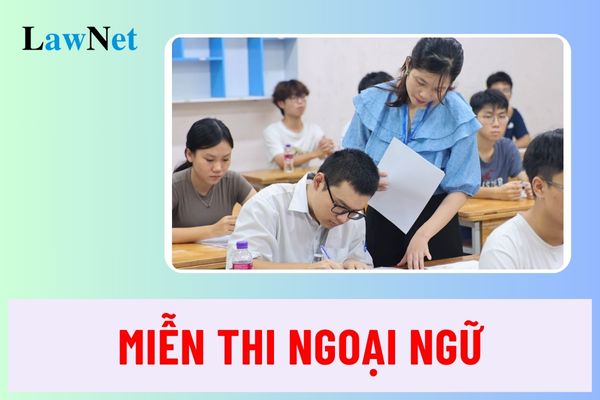Which grade level do students in Vietnam study Informatics under the 2018 General Education Program?
Which grade level do students in Vietnam study Informatics under the 2018 General Education Program in the 2024 - 2025 school year?
Based on the provisions of Article 2 of Circular 32/2018/TT-BGDDT, the regulations are as follows:
The general education program is implemented according to the following schedule:
1. From the 2020-2021 school year for Grade 1.
2. From the 2021-2022 school year for Grades 2 and 6.
3. From the 2022-2023 school year for Grades 3, 7, and 10.
4. From the 2023-2024 school year for Grades 4, 8, and 11.
5. From the 2024-2025 school year for Grades 5, 9, and 12.
Based on Subsection 1, Section 4 of the General Curriculum, the general education curriculum issued together with Circular 32/2018/TT-BGDDT clearly states that Informatics will start being taught from Grade 3.
According to Official Dispatch 816/BGDDT-GDTH year 2022, implementing the General Education Program in Circular 32/2018/TT-BGDDT, Informatics will be a compulsory subject starting from Grade 3 from the 2022-2023 school year.
The 2018 General Education Program for Informatics will apply for students from Grade 3 to Grade 12 in the 2024-2025 school year.

Which grade level do students in Vietnam study Informatics under the 2018 General Education Program in the 2024 - 2025 school year? (Image from Internet)
What are the perspectives on developing the 2018 General Education Program for Informatics in Vietnam?
The perspectives of the General Curriculum, the Informatics Program focuses on 04 perspectives as stipulated in Section 2 of the general education program for Informatics issued together with Circular 32/2018/TT-BGDDT include:
(1) Continuity and Development
- Inheriting the current Informatics program
The Informatics Program inherits and develops the key advantages of the current program, which are systematization and scientific nature, while avoiding theoretical bias in some contents and overlap between educational levels, causing overload.
- Leveraging the Informatics programs of advanced countries
In the context where many countries value the development of Informatics education programs to train human resources for the Fourth Industrial Revolution, the Informatics Program leverages, selects, and applies Informatics programs from advanced countries to integrate and aim at international standards.
(2) Scientific, Modern, and Pedagogical Nature
The Informatics Program selects the core, universal, and modern content of three knowledge streams: Digital Literacy (DL), Information and Communication Technology (ICT), and Computer Science (CS), while adequately addressing content on ethics, laws, culture, and the impact of Informatics on society, ensuring the principle of “simultaneously teaching knowledge and teaching people” and emphasizing humanity in the highly connected era of the real world and the digital world.
The program is designed with pedagogical principles: ensuring balanced difficulty, developing knowledge streams both linearly and concentrically, building a system of core concepts.
Content and requirements are selected to suit age groups, mixing theoretical and practical contents, abstract and visual.
Major themes run through all educational levels with gradually increasing achievement requirements. Core concepts begin forming at the primary level and gradually develop fully in higher educational levels.
(3) Practicality
- Serving career orientation
In the context of the Fourth Industrial Revolution, where many new professions and jobs require in-depth Informatics knowledge and skills, the Informatics Program shows the potential for wide diffusion and deep integration of Informatics into all areas of life, establishing a wide range of specialized and applied Informatics careers for different student groups.
- Implementing STEM education
STEM education orientation is being implemented as an important direction in education and training in many countries worldwide.
As a foundational technology integrating all four STEM education elements (Science (S), Technology (T), Engineering (E), and Mathematics (M)), Informatics plays a central role in connecting other subjects, promoting STEM education, and enhancing student creativity to create high ICT-content digital products.
The Informatics Program leverages interdisciplinary integration strengths by requiring students to create digital products individually and in learning groups, narrowing the gap between academic education and practice.
(4) Openness
- Open program content
The Informatics Program has both mandatory and optional themes. The content themes are not dependent on specific hardware and software devices, and they do not differentiate between open and closed software and learning materials, facilitating application fitting local capacities and different student groups.
Due to its unique characteristics, the Informatics Program needs to be updated and adjusted periodically in the short-term according to the guidelines of the Ministry of Education and Training to ensure modernity and timeliness, meeting the rapid development of digital technology, and fitting the country’s socio-economic conditions.
- Diverse educational forms
The Informatics Program selects practical and appealing themes, allowing students to study and apply Informatics not only within the confines of the Informatics subject but also in other subjects, and not only within the school premises but also in other environments outside the school (at home, via the internet, in clubs, and in real-life scenarios).
What are the current content and form requirements for Informatics textbooks in Vietnam?
Based on Article 4, which specifies the standards, procedures for compiling, editing textbooks; standards for organizations and individuals compiling textbooks; the organization and activities of the National Textbook Appraisal Council issued together with Circular 33/2017/TT-BGDDT, the prerequisite conditions for Informatics textbooks are as follows:
- The content and form of the textbooks must not violate the laws of Vietnam and must conform to national publishing standards.
- The content and form of the textbooks must not hold prejudices on race, religion, occupation, gender, age, or social status.

